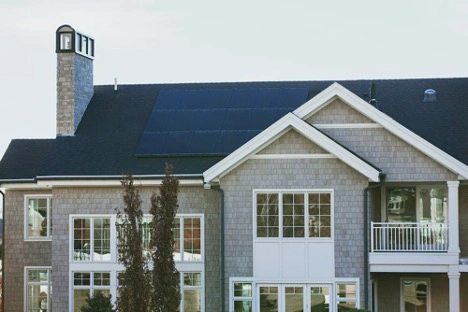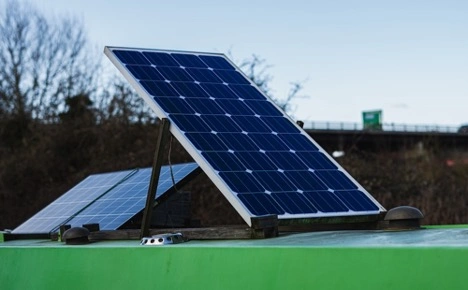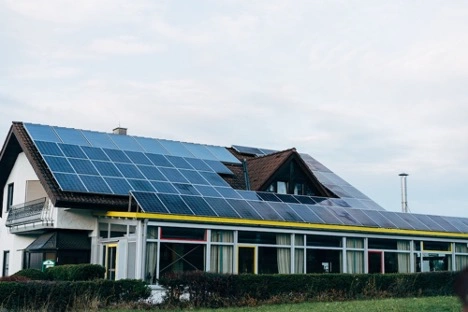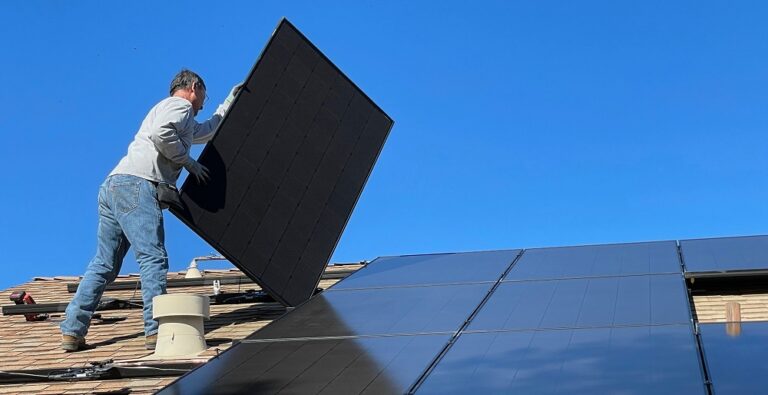How Many Solar Panels Do I Need?

The rise in fuel and electricity prices has made people think of alternate resources. And there is no better option than solar energy at the moment. But most people ask one question: “How many solar panels do I need?”. The question is a bit complex and varies from one case to another. But it depends on several factors. An average household needs around 10-15 solar panels to meet its energy needs. This number also varies depending on the number of residents and the use of appliances.
The number of solar panels needed for your home is also important. The reason is that it determines the total cost of the project. But the factors it depends on include energy usage, the roof size, and the home’s location. The amount of sunlight in your area is also a key factor. So, combine all these to understand the need for panels.
Let’s look at the deciding factors for the choice of solar panels.
How much Solar Energy do you need?
Your utility bills are the first thing to consider for determining the energy you need. With this, you’ll know your home’s average energy usage in a month. A home’s average power consumption is between 800kW and 900kW per month. Or you can calculate for your home as well. Multiply the hourly power needed by peak sunlight hours. Divide the answer by the panels’ wattage. You’ll get the exact figure of how much power you need.
The place you live also tells you the number of panels you need. For example, snow keeps falling in some hilly areas throughout the year. As a result, the sun only comes out sometimes. You may need more panels under such circumstances to meet your energy needs.
Which Factors Determine the number of solar panels you need?
Certain factors decide how many panels you need. This includes your power usage, the amount of sunlight on your roof, and the space. Here is a detailed look at these:
Power Consumption
You are installing solar panels because you want them to power your home. But you must know first how much power you need for your home or workplace. It is obvious that homes with more residents need more energy and vice versa. The same goes for larger homes. But if you use appliances of better quality, the power consumption can decrease to a large extent. So, smaller homes with fewer appliances will need less energy. As a result, you will need fewer solar panels.
The kilowatt-hours (kWh) sign on your bills indicates your home’s electricity usage. For example, you’ll need a bigger solar setup if you use 700 kWh/month with an average of 5-6 peak hours a day. In comparison, a household using 350 kWh will need a smaller setup. The reason is that the latter’s energy usage is less. So, there is no need for more panels.
If your home is energy-efficient based on the use of appliances, you’ll need a lesser number of panels. For example, using energy-saving appliances such as LED bulbs reduces power consumption. All in all, more energy usage will need the installation of more panels.
Orientation and Shading
It would be best to consider whether your roof is suitable for installing the panels. Shading on the roof indicates that solar panels won’t work. But a roof that receives sunlight is a good contender. If some part of your roof doesn’t get the required sunlight, you cannot use that space either.
The orientation and direction of panels depend on the place you live in. Some parts of the world favor panels facing the south side, while others favor north-facing panels. Considering this optimizes the output of your panels and maximizes your energy generation. But, it is better to hire a professional solar installer for the installation. The reason is that you may end up deciding in the wrong direction.
Size of Roof and Panels
The size of your roof matters the most when it comes to installing solar panels. Your roof is useless if there is a shade over it; it doesn’t matter how big it is. Having a smaller roof means you will need monocrystalline panels. That is because of their high efficiency. Though the capital investment is high, you will need fewer panels to power your home. As a result, the return on investment (ROI) is also higher. You may compare a monocrystalline panel with a polycrystalline one. The former is better.
You can also use thin-film solar panels because they are cheap. But they are less efficient as well. So, you will end up installing more units. And most homes don’t have enough space. Also, the standard size for panels ranges between 40 and 65 inches. But it varies from one brand to another. So, it is advisable to ask a solar contractor to assess your roof. After that, he’ll recommend the panel size and tell about the number of panels.
Climate Conditions
If the area you live in has harsh weather conditions, the efficiency of solar panels may be affected. But if you live in a place with more sun hours, the conditions will suit you better. The areas with less sunlight need more panels to compensate for the energy loss. So, this factor contributes to the decision about the number of solar panels.

Budget
Your budget is more important in comparison with all the factors mentioned above. Apart from checking the location and size of the roof, you must see if your pocket allows you to do it. A solar project may cost you between $16000 and $40000 depending on the number and quality of panels. This includes the cost of batteries, solar units, and their installation.
You may also add maintenance costs because you want to increase the panels’ lifespan. As a whole, the budget may look high. But it will save you a lot of money at the end of the day.
Considering all these factors, you must decide how many panels you need.
How to Calculate the number of Panels for your Home?
The factors mentioned above have given you an idea of what to look for before installing the panels. But the calculation of the number of panels is what you must know. Given below is a breakdown of steps to calculate the total number of panels:
Average annual energy usage for one household: 10,500 kWh
Average peak sun hours a day: 4 hours
Annual peak sun hours: 365 x 4 =1460 hours
Solar Panel Wattage: 350W
- Multiply annual energy consumption by 1000: 10,500,000
- Divide this number by total peak sun hours:
10,500,000/1460= 7191.78
- Now, divide this by the wattage of each of your panels:
7191.78/350= 20.5
This rounds off to 21.
So, if each of your panels is 350W and peak sun hours at your location are 4, the number of panels you need is 21. But remember, once you increase power consumption, the number of panels will increase. For example, if you’ve installed 21 panels for certain appliances only, you can’t run anymore on them. Those appliances include AC, TV, or any such device.
Some people also install panels because they’ve to charge their electric vehicles. This is one of the reliable options since you may need to charge your car daily. As a result, you will save your fuel and electricity prices.
How much money can you save by installing solar panels?
An average household spends around $130 monthly on electricity bills. That is more than $1500 a year and is not a great investment either. You consume energy and pay for it later. But in the case of solar energy, you have to pay nothing. It’s the capital cost only that you have to pay. And the payback period is between 10 and 15 years. Since the average lifespan of a good-quality panel is 30 to 40 years, it is a good investment.
Apart from that, you can also get the benefit of net metering. It’s a policy that allows you to sell all the unused power your panels generate. You can transfer that electricity to the national grid and save much more. But that depends on your own need for electricity and the devices you use at home. All in all, you can save a lot of money by installing solar panels at home.
Conclusion
Everyone around the globe wants to install solar panels. This is because they want to use energy produced without emissions. But most of them don’t know much about the quality of panels. Also, they don’t have any idea about the number of solar panels they need. They should consider the factors mentioned above before planning to install the panels. Though the surveys take a lot of time, the investment is beneficial in the long run.
Solar panels let you maximize your savings in several ways. You only need to hire a professional solar installer to assess the conditions. After that, he will let you know further. Once you get this done, you can forget about your electricity bill for the rest of your life.

